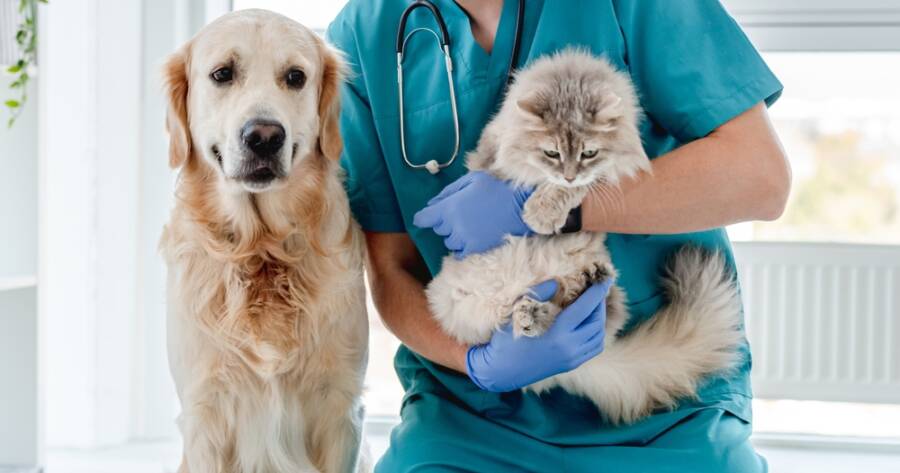Taking your pet to the vet for their first check-up can be an experience filled with both anticipation and a bit of apprehension. As a pet owner, understanding what to expect during this initial visit can help streamline the process for both you and your furry friend. While every veterinary practice may have its own nuances, a first check-up typically covers several key areas that are intended to assess the overall well-being of your pet.
The Initial Consultation
During the first check-up, the vet will likely begin by gathering a comprehensive history of your pet. This may include information about where you got your pet, any previous medical records, and specific details about their diet, habits, and behavior. This consultation serves to establish a foundational health record, which could be vital for monitoring and managing future health needs.
As part of this history-taking process, expect to answer questions about your pet’s environment and lifestyle. The vet might also inquire about any health concerns or symptoms you may have noticed. While not every health issue may be immediately identifiable, sharing as much information as possible could help in the early detection of potential problems.
Physical Examination: What to Expect
The heart of the check-up involves a thorough physical examination. The vet may conduct a head-to-tail inspection to assess the pet’s overall health. This typically includes examining the eyes, ears, nose, mouth, and skin for any signs of abnormalities or irritation. They might use a stethoscope to listen to your pet’s heart and lungs, checking for normal rhythms and any irregularities.
Additionally, the vet might palpate the abdomen to check for any unusual masses or signs of discomfort. They may also assess your pet’s weight and body condition score which can be crucial in determining appropriate dietary needs and identifying obesity or malnutrition.
Vaccinations and Preventative Care
An essential component of the first check-up could be discussing vaccinations and preventative care. Depending on your pet’s age, species, and health status, the vet might outline a vaccination schedule aimed at preventing common infectious diseases. They may tailor this schedule based on factors such as geographic location and lifestyle.
Beyond vaccinations, the vet might discuss preventative care measures like parasite control, including treatments that target fleas, ticks, and worms. While no pet is immune to pests, consistent preventative care can greatly reduce the risks. It is often a collaborative decision-making process where the vet provides information, and you decide what’s best for your pet’s specific situation.
Nutritional Guidance and Diet
Nutrition is a cornerstone of pet health, and the vet might offer guidance on proper feeding practices. They may evaluate your pet’s current diet and suggest adjustments if necessary to ensure a balanced intake of nutrients.
The advice often considers your pet’s age, breed, activity level, and any specific health conditions. If you are considering a special diet or have questions about specific pet foods, these discussions can be crucial. While the vet might have recommendations, it’s always important to monitor your pet’s response to dietary changes and consult the vet if any issues arise.
Behavioral Assessment
Understanding your pet’s behavior can be essential for a harmonious relationship, and the first vet check-up might include a basic assessment of behavior. The vet could offer insights into typical and atypical behaviors, providing guidance on training or behavioral modification if needed.
Some pets may exhibit stress or anxiety, particularly during their first visit to the vet. The vet may provide strategies to help reduce anxiety and make future visits less stressful for both you and your pet. While behavior can be complex and influenced by various factors, early advice can form a strong foundation for development and training.
Building a Relationship with Your Vet
Building a trusting relationship with your vet can make a significant difference in the overall care and health of your pet. This initial visit allows both you and your pet to get familiar with the veterinary practice and its staff.
By establishing open communication, you create an environment where concerns can be easily discussed, and solutions more readily found. While each pet and situation is unique, maintaining a collaborative relationship with your vet can be invaluable in addressing health issues promptly and effectively.
Learn More Today!
The first vet check-up is an essential step in ensuring your pet starts on a path toward lifelong health. By understanding the various aspects of the visit, from initial consultation to preventive care and nutrition guidance, pet owners can be better prepared to support their furry friends.
Although this is just the beginning of your pet’s healthcare journey, regular check-ups paired with proactive care can contribute significantly to their well-being and longevity. Remember, your vet is a partner in your pet care efforts, helping navigate any health challenges that may arise.

